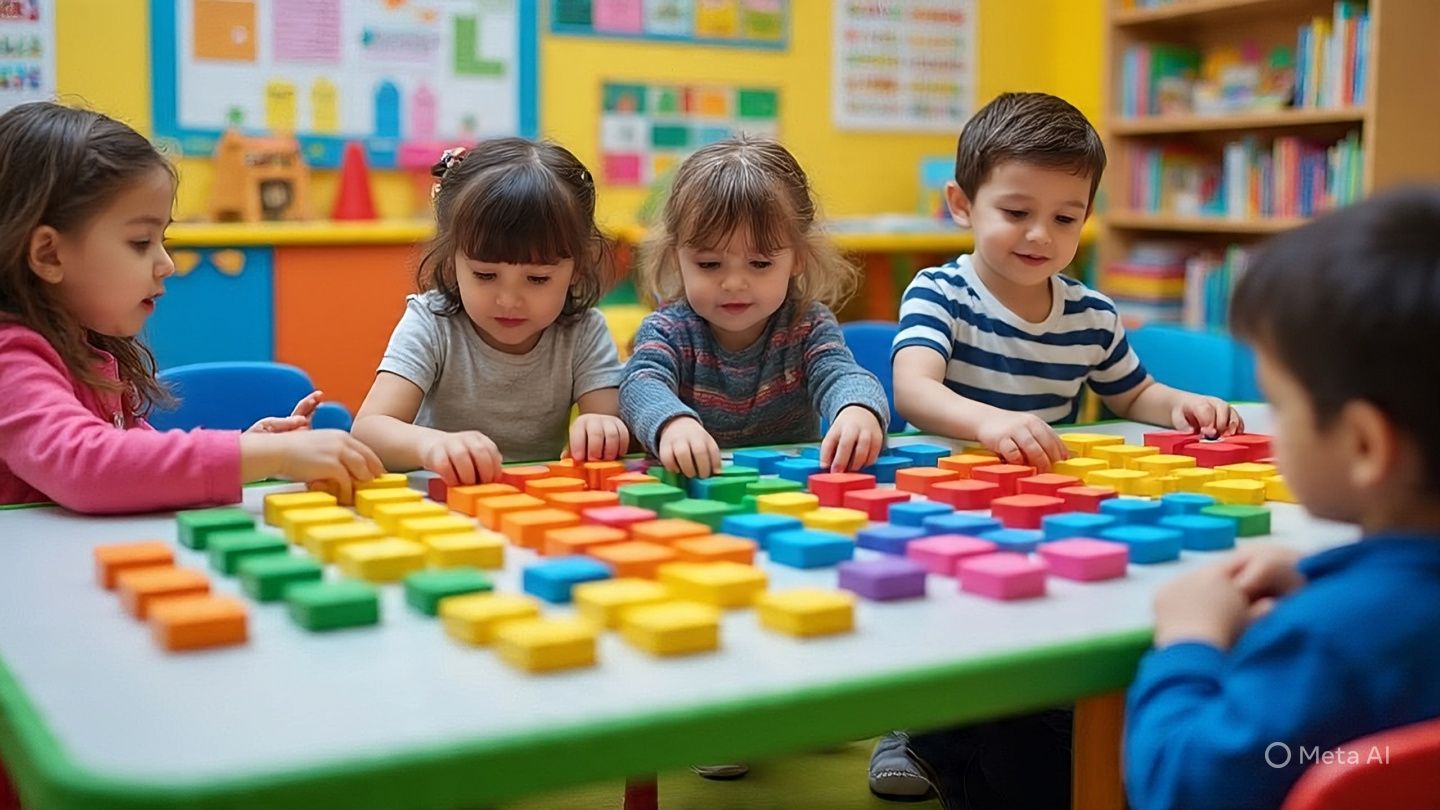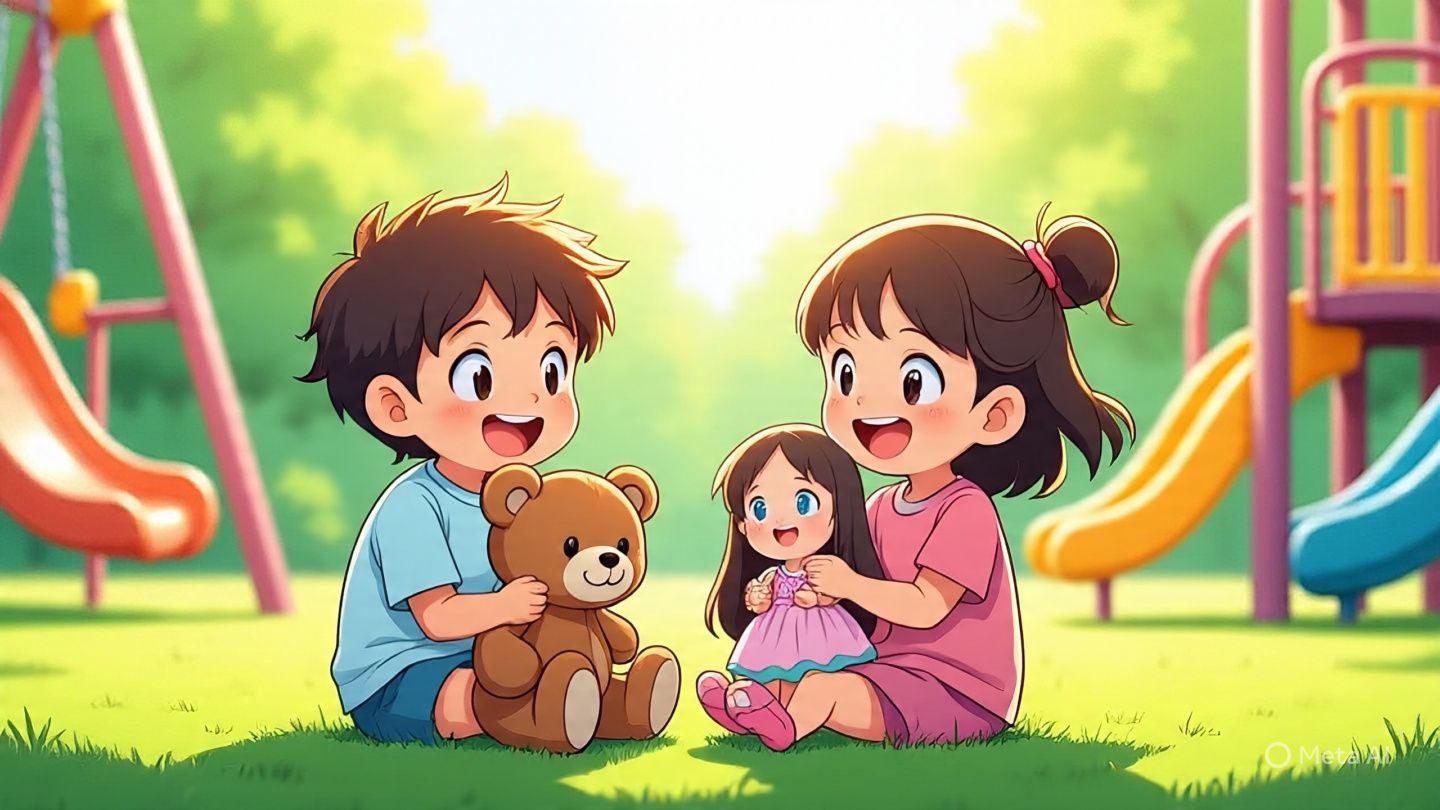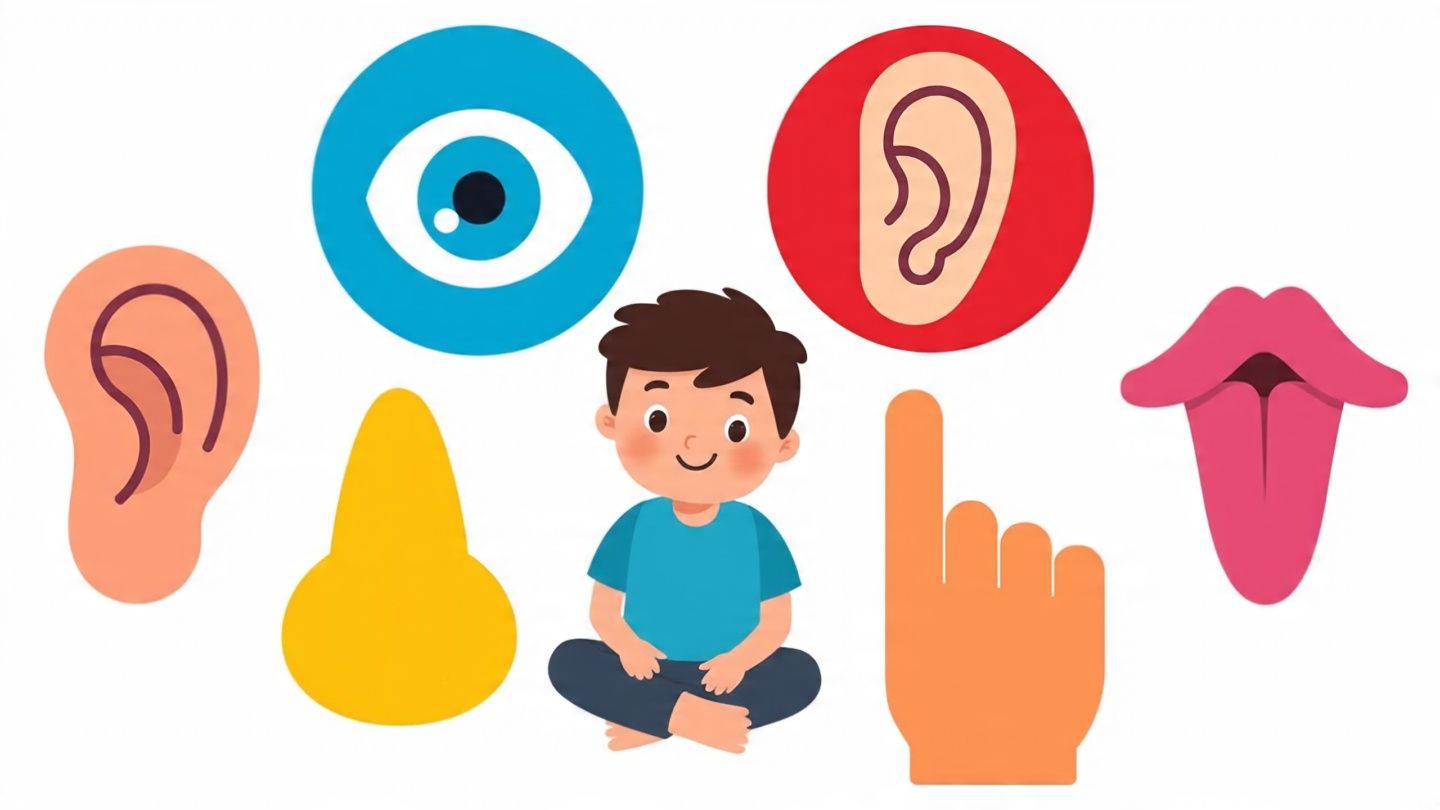Understanding Patterns in Math for Kids
Patterns are everywhere! Whether it’s the stripes on a zebra or the rhythm of a song, children observe patterns long before they learn what they mean. Teaching patterns helps children identify sequences, predict outcomes, and build strong problem-solving skills. Let’s explore different kinds of patterns every young learner should know:
- Color Patterns
Use objects like crayons or blocks. Arrange them in a red-blue-red-blue sequence and ask, “What comes next?” This builds prediction skills. - Shape Patterns
Circle-square-circle-square — recognizing such patterns improves visual memory. You can draw or use cut-outs to make this interactive. - Number Patterns
Numbers like 2, 4, 6, 8 help kids notice additions of +2. Ask children to fill in the missing number to strengthen their arithmetic skills. - Sound Patterns
Clap-clap-snap, clap-clap-snap! These help kids feel rhythm and structure. Fun in music class or during playtime. - Action Patterns
Stand-sit-stand-sit — kids love movement! Use actions to explain patterns while keeping them active. - Object Patterns
Arrange toys like car-truck-car-truck and ask them to continue the line. This is a hands-on method to grasp the concept. - Picture Patterns
Use printed images (e.g., sun-cloud-sun-cloud) to challenge visual sequencing. - Alphabet Patterns
A-B-C-A-B-C builds memory and links literacy with logical thinking. - Skipping Patterns
Teach skip counting like 5, 10, 15, 20 to show patterns in multiplication tables too. - Mixed Patterns
Combine colors and shapes (e.g., red circle-blue square-red circle…) for advanced challenges.
Practicing patterns builds early math fluency and lays the groundwork for algebra and logical reasoning. Encourage your kids to find patterns in clothes, nature, music, or their toys — it turns math into a fun discovery process!




Leave a Reply